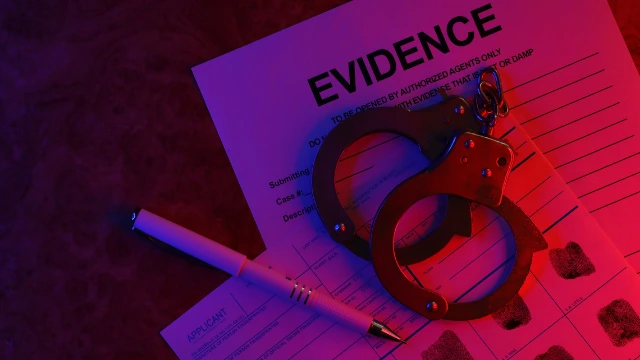

Why Expunging a Traffic Violation Matters
Imagine applying for a job, only to find out that a past traffic violation is affecting your chances. Or trying to get affordable car insurance, only to be quoted sky-high rates because of an old driving offense. Even minor violations can leave a lasting impact on your record, but record clearing offers a legal path to wipe the slate clean.
Many people believe that once a traffic violation is on their record, it stays there forever. However, traffic violation record expungement provides an opportunity to remove certain offenses, making it easier to secure employment, obtain lower insurance rates, and restore driving privileges. Understanding legal eligibility and the expungement process can help individuals navigate this often-overlooked legal option.
Record Clearing: What is Expungement?
Expungement is the legal process of removing a conviction or violation from a person’s record, making it as if the offense never occurred. In some cases, the violation is sealed from public view, meaning employers, insurance companies, and landlords cannot access the record.
For traffic offenses, expungement can apply to:
- Speeding tickets
- DUI convictions (in some states)
- Reckless driving charges
- Failure-to-appear violations
- License suspensions
Each state has different laws governing expungement, and not all violations are eligible for removal. Drivers must understand the specific legal eligibility requirements before filing a petition.
Legal Eligibility: Who Can Apply for Expungement?
Not everyone qualifies for record clearing, and states impose different legal eligibility criteria. Some of the most common factors include:
1. Type of Violation
Expungement is typically available for minor infractions, while serious offenses like vehicular manslaughter, felony DUIs, and hit-and-run incidents may not qualify.
2. Time Since the Violation
Most states require a waiting period before applying for expungement. For example:
- A speeding ticket may be eligible for expungement after three years.
- A DUI conviction may require five to ten years before a request is considered.
3. Completion of Sentence or Probation
Drivers must demonstrate they have met all legal obligations, including:
- Paying all fines and court fees.
- Completing probation or traffic school.
- Satisfying any license suspension requirements.
4. No Repeat Offenses
Expungement is often granted to first-time offenders. If a driver has multiple violations, courts are less likely to approve the request.
By meeting these conditions, drivers improve their chances of successfully clearing their records.
How to Expunge a Traffic Violation
The expungement process varies by state, but the general steps include:
1. Obtain a Copy of Your Driving Record
Before applying, drivers should request their official driving history from the Department of Motor Vehicles (DMV) or a relevant state agency.
2. Determine Legal Eligibility
Checking state-specific expungement laws is crucial to understanding whether the offense qualifies for removal.
3. File an Expungement Petition
Drivers must complete and submit legal paperwork to the appropriate court. This usually includes:
- A formal petition requesting expungement.
- Proof that all court orders were completed.
- A statement explaining why the record should be cleared.
4. Attend a Court Hearing (if required)
Some states require an in-person hearing where a judge reviews the request and determines whether to grant the expungement.
5. Receive a Decision
If approved, the court removes the violation from the driver’s record. If denied, the driver may have the option to appeal or reapply after additional time has passed.
By following these steps, drivers can work toward erasing past mistakes and improving their legal standing.
Sentencing Factors That Impact Expungement
Courts consider several sentencing factors when reviewing expungement applications. These factors influence whether a violation can or cannot be removed:
- Severity of the Offense – More serious violations, like DUIs or reckless driving, require longer waiting periods and additional legal hurdles.
- Rehabilitation Efforts – Completing driver improvement courses or maintaining a clean record improves chances of expungement.
- Impact on Employment or Life Circumstances – Judges may approve expungement if a violation negatively affects job opportunities or professional licenses.
- Compliance with Court Orders – Failure to pay fines or complete court-ordered programs reduces the likelihood of approval.
- State-Specific Laws – Some states allow for automatic expungement of minor offenses, while others require extensive legal proceedings.
Case Study: How One Driver Cleared Their Traffic Record
Background
David, a 32-year-old sales manager, received a reckless driving conviction five years ago after speeding on the highway. The charge resulted in a suspended license, probation, and high insurance rates.
Expungement Process
David followed these steps to clear his record:
- Completed a defensive driving course to show rehabilitation.
- Waited five years as required by state law.
- Filed a petition with the court including proof of good behavior and no repeat offenses.
- Attended a hearing, where he explained how the charge affected his career and insurance costs.
Outcome
The judge granted expungement, allowing David to restore his clean driving record. His insurance rates dropped, and he no longer had to disclose the violation to employers.
Final Thoughts
Having a traffic violation on your record can lead to higher insurance rates, employment challenges, and license restrictions. However, understanding record-clearing laws and the expungement process can help drivers move forward with a clean slate. If you’re considering expungement, consulting a traffic attorney may improve your chances of success.
Frequently Asked Questions (FAQs)
- Can all traffic violations be expunged? No. Most states allow minor violations to be expunged but prohibit clearing serious offenses like felony DUIs or vehicular manslaughter.
- How long does it take to expunge a traffic record? The process varies but can take weeks to several months, depending on court schedules and state laws.
- Does expungement remove violations from my insurance history? Yes, in most cases, insurance companies will no longer see the violation, which can lead to lower premiums.
- Can I apply for expungement on my own, or do I need a lawyer? While some drivers handle the process independently, hiring a traffic attorney can increase the likelihood of success.
- Will expungement restore my suspended license? It depends on the case. Expungement removes the violation, but drivers may still need to complete separate DMV requirements for reinstatement.



